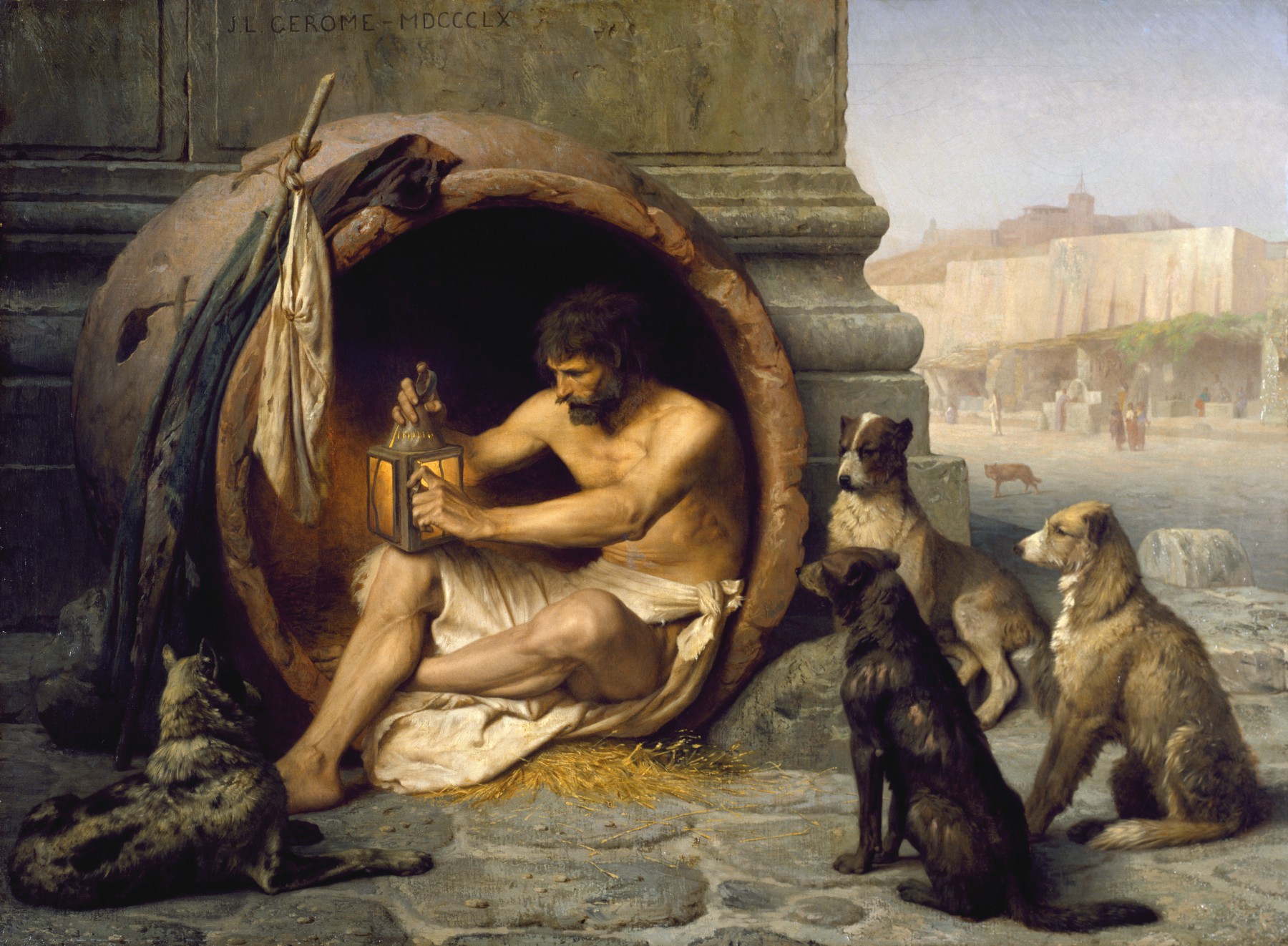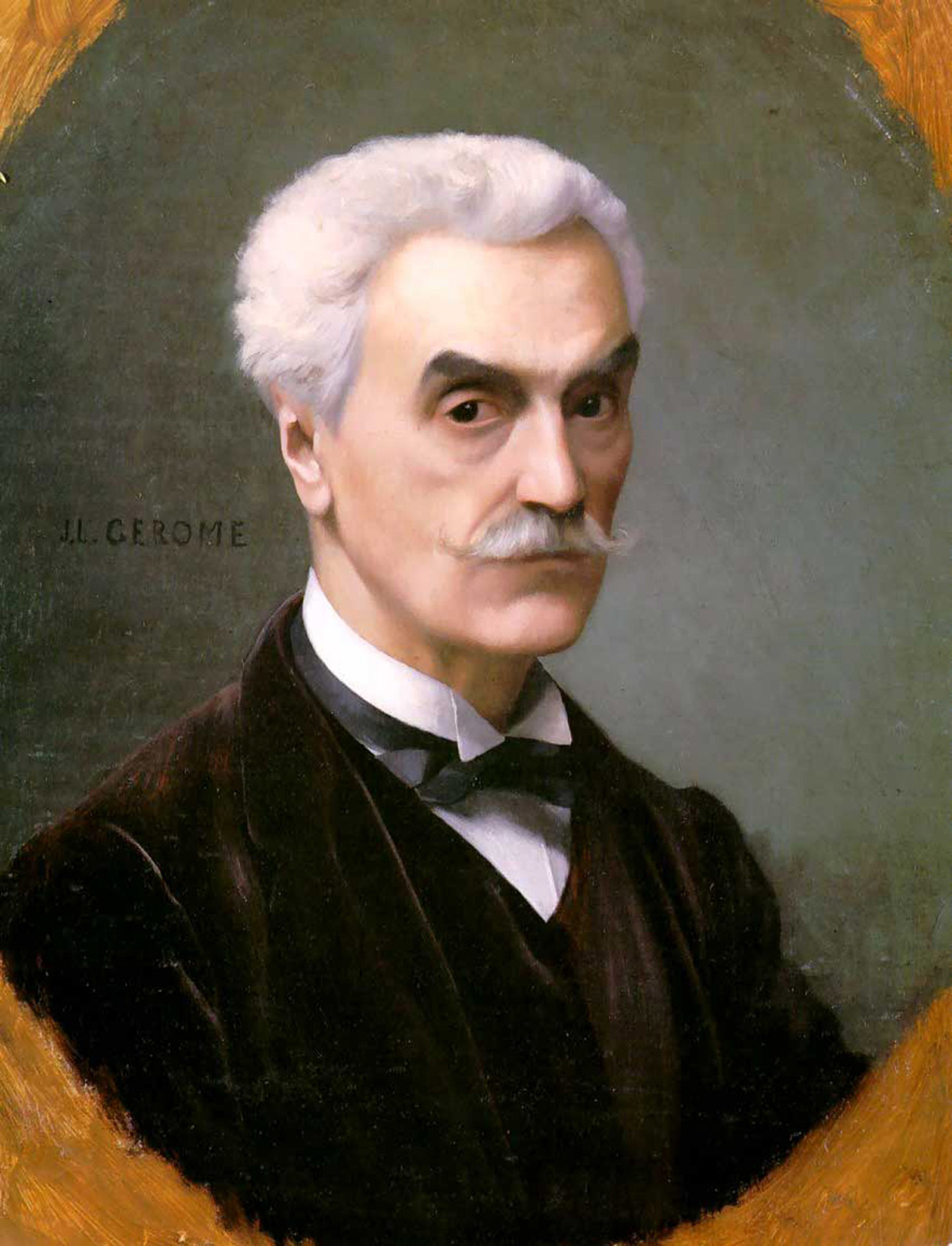Jean-Léon Gérôme (1824-1904) was a prominent French artist during the nineteenth century known for his somewhat unconventional academic painting style. Gérôme was opposed to the evolving transition towards Impressionism in his time and sought to preserve the classically ornate tradition of academic painting. Although a supporter of this established convention, Gérôme is notably unorthodox in his endeavors to dramatize his paintings in lavish scenes of historical storytelling. Diogenes depicts the Cynic philosopher in a scene that truly attempts to capture the overall essence of the philosopher.
Diogenes was one of the founders of the school of Cynic philosophy in Ancient Greece. This school of thought embraced the rejection of social authority and norms. Their goal was to free the hypnotized public from their enslavement to their possessions and passions and to promote a simple and virtuous natural existence. Diogenes wholeheartedly embodied this philosophy in his personal life and is known as a figure who publicly challenged the authority of many prominent figures of the time (such as interrupting lectures given by Plato and disrespecting Alexander the Great to his face).
The various themes and symbols featured in this work capture his life and philosophy perfectly. As depicted here, Diogenes lived on the street (and reported by some) in the containers used for food storage. This was an example of his philosophy in action by striving towards a possession free and naturalistic life. The dogs in this scene appeal to the philosopher’s belief that we should emulate the animal’s austere appearance and stoic attitude towards life. The lamp held by Diogenes comes from public reports of the philosopher wandering through the streets shining the lamp in the faces the Greeks in search for an honest man. All of the themes, elements, and symbolism featured in this work captures a holistic representation of the philosopher giving the observer a front row glimpse of a day in the life of the eccentric Greek Cynic.
- Alexander Smith


 Jean-Léon Gérôme
Jean-Léon Gérôme